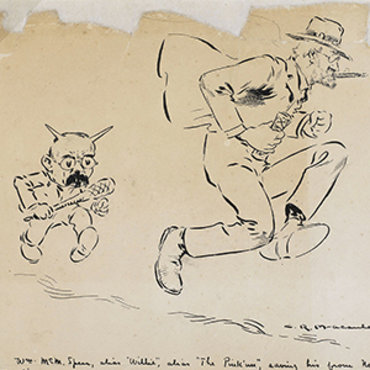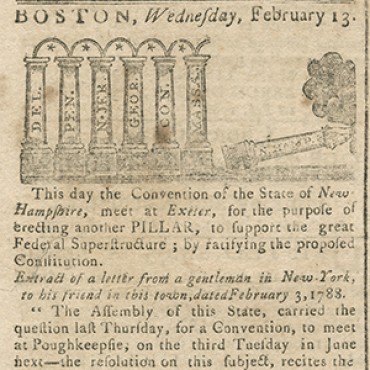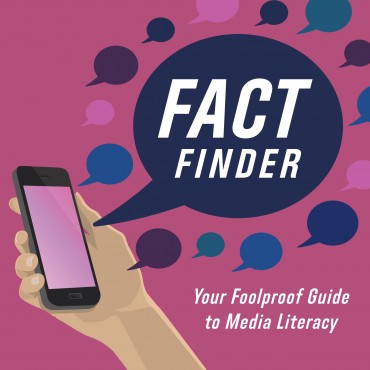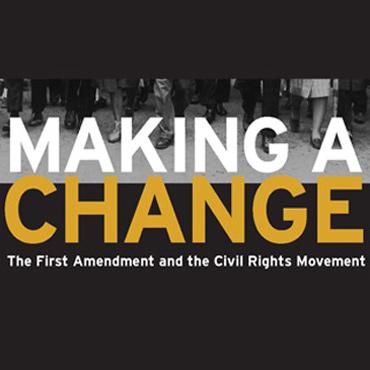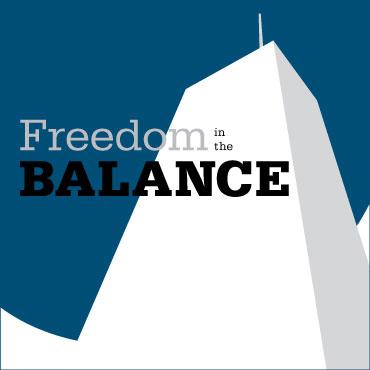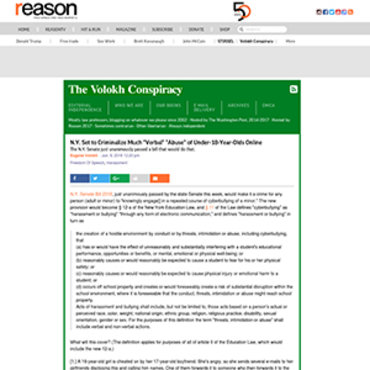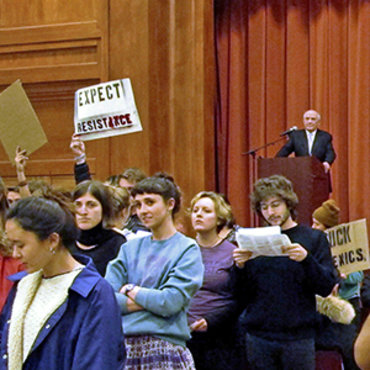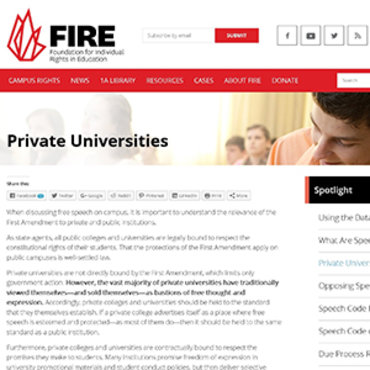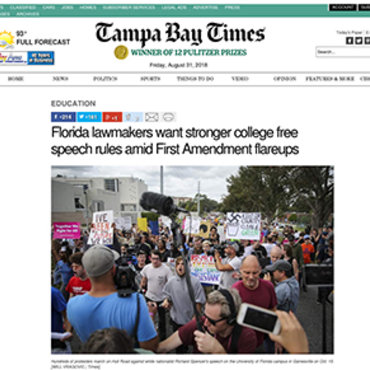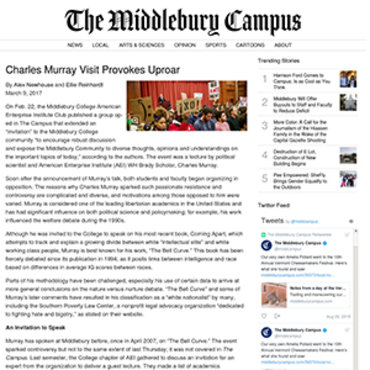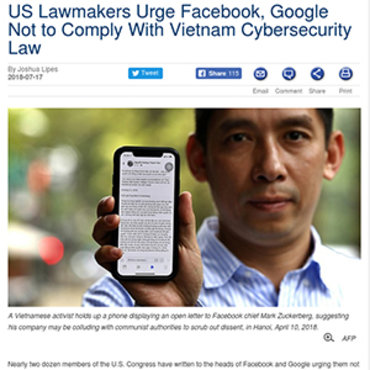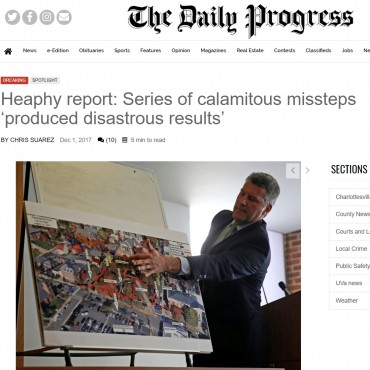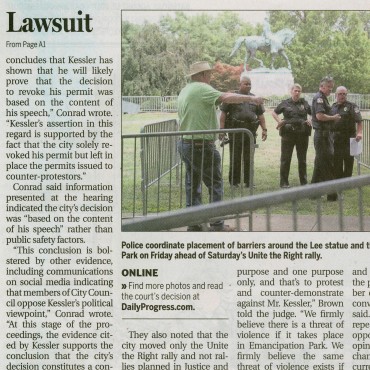2018: Bombarded by Bots
Should we regulate the use of bots to spread messages online?
Get even more great free content!
This content contains copyrighted material that requires a free NewseumED account.
Registration is fast, easy, and comes with 100% free access to our vast collection of videos, artifacts, interactive content, and more.
NewseumED is provided as a free educational resource and contains copyrighted material. Registration is required for full access. Signing up is simple and free.
With a free NewseumED account, you can:
- Watch timely and informative videos
- Access expertly crafted lesson plans
- Download an array of classroom resources
- and much more!
This Critical Debate is part of a Debate Comparison:
See all Debate Comparisons- Constitution
- Current Events
- 7-12
- College/University
Do your students know what they’re free to say online? At school? On a public street corner?
From censorship to cyberbullying, the First Amendment and the freedoms it protects are as hotly contested as ever. This case study is part of our EDCollection that explores 16 real free speech debates ranging from the founding of our nation to recent headlines to illustrate what free speech actually means, where it comes from, and how far it can go. It’s information everyone needs to voice their opinions and shape our society.
Using This EDCollection
This EDCollection is designed to meet the needs of a wide range of circumstances and curricula. Whether you’re a social studies teacher looking for a complete unit or an English teacher looking to spend a single class period on free expression, there’s something for everyone. This complete package will lead students to the outcomes below.
Build Fact-Based Arguments
The Free Speech Essentials curriculum aligns with state and national standards as it guides students to take a position, find evidence to support it, and make a compelling presentation to their peers. Potential evidence includes:
- Writings, images and video from 1787 to 2018
- Primary and secondary sources
Connect Past and Present
Six of the eight pairs of case studies in this EDCollection juxtapose real historical and contemporary debates on a key free expression question. These pairs allow students to explore the historical origins of a key question — and get context for tackling today’s hot-button issues. The other two pairs provide different perspectives on a contemporary issue. Topics include:
- Federalism and Facebook
- Presidents and the press
- Censorship and cyberbullying
Keep Calm (and Debate On)
Our case studies are structured to help students experience the passion of the real players, while still practicing productive debate. We provide everything you need to prepare and fully support your students as they engage in civil discourse and debates:
- Overviews of the outcomes
- Clear scenarios and suggested positions
- Suggested discussion prompts.
Today’s social and political landscape can sometimes make free speech and First Amendment controversies seem too explosive for classroom exploration. We’ve created Free Speech Essentials to give you the tools you need to start tackling these vital topics with confidence and create enriching experiences for your students.
— The NewseumED Team
THE CASE
You are a U.S. senator. Another senator approaches you to co-sponsor a bill with her. The bill would prohibit the use of online “bots” to spread political messages. Bots are software programs created to complete automated tasks online. In recent years, they have become widespread across the internet, posting comments on social media feeds and the comments sections of news articles and blog posts. Bots can be programmed to spam certain pages, raising their ranking on social media feeds and causing that content to go viral. Some are even programmed to string together words and phrases that sound like real human comments and that wind up being reposted across the web.
Your fellow senator is concerned that bots are being used to create and spread misinformation that could sway voters during political elections. The content they promote is often biased or even fake, and it may be making it more difficult for citizens to develop informed opinions about issues and candidates. In some cases, the bots that spread political messages are not even based in the United States, increasing fears that other countries could be trying to meddle in American elections.
On the one hand, you know your constituents are not well-served by much of the content that bots are responsible for spreading online. And though you know the First Amendment protects free speech, you’re not sure if computer-generated messages or messages from foreign individuals attempting to influence elections should be protected.
On the other hand, you know that effectively regulating online activity that is generally conducted under-the-radar could be very challenging, and it seems possible that bots could also be used to create or promote helpful or interesting information that should be protected by the First Amendment.
Should you support a ban on using bots to spread political messages?
-
Yes. Democracy depends on it.
The First Amendment was intended to protect people, not programming. Bots are an unfair tool with the potential to damage our political process.
-
No. Bots may be problematic, but they shouldn’t be illegal.
There are human beings behind these tools who should have First Amendment protections. The First Amendment has always adapted to new technologies, and bots are just the latest innovation.
- Should the First Amendment protect bot-generated messages? What about messages created by people but spread by bots? Does it matter who created the bot or why?
- Who is best equipped to evaluate and regulate social media content — users, government, or the corporations themselves? Why?
- How would you make sure content that is blocked is verified as bot activity and that users aren’t accidentally censored?
- What happens when new technology changes the way bots work or replaces them altogether?
- Do you think you can recognize bot-created or bot-shared content online? If yes, how? If not, what would help you be able to do this?



